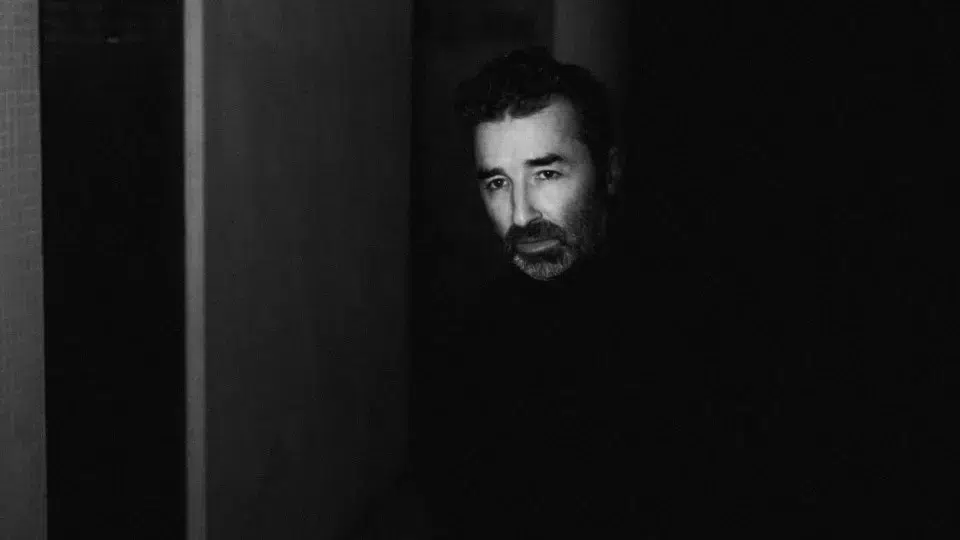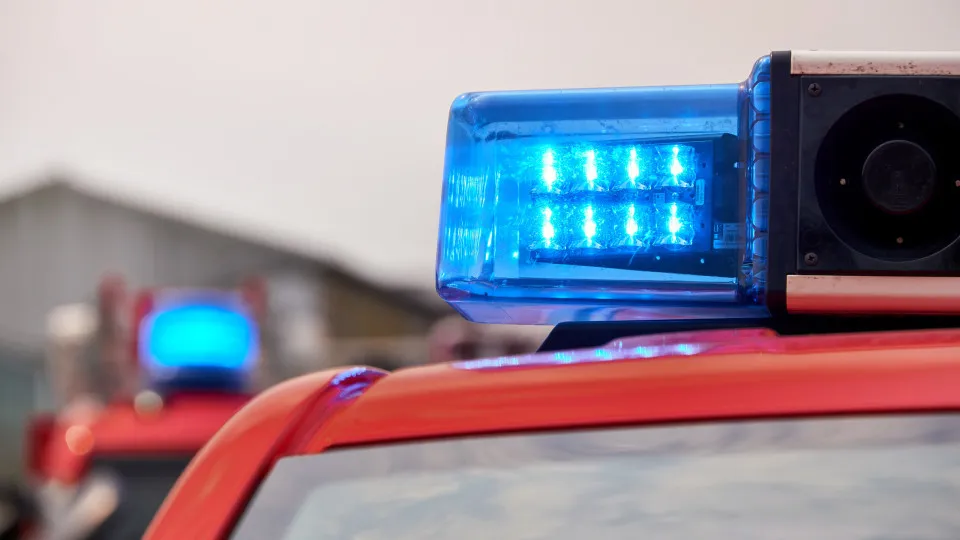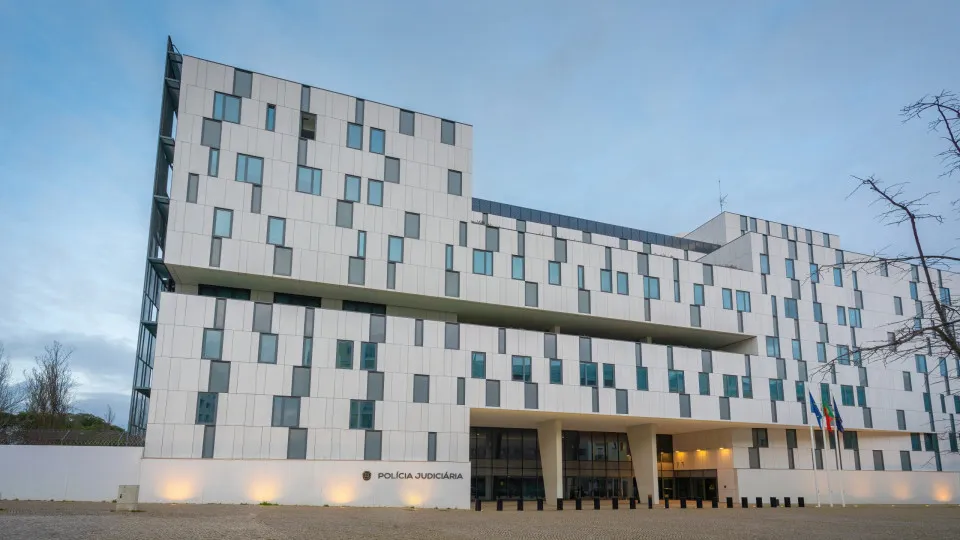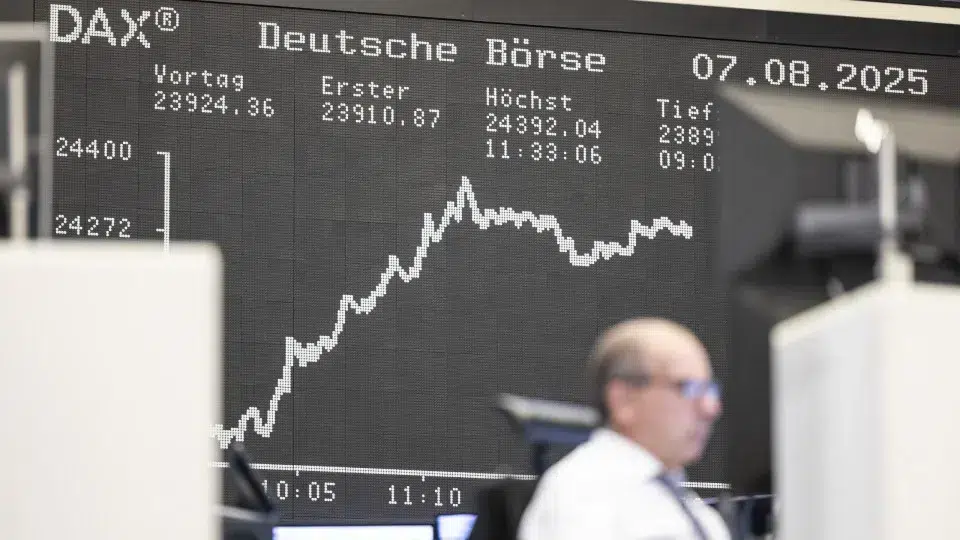
‘Foz’, the new album by Tiago Bettencourt, was “conceived” in Switzerland, as he explained in an interview. The trip occurred “at a time when he already had most of the songs.”
“I was invited by Swiss Tourism to do an artistic residency in Bruson, a small village in Val de Bagnes. Basically, I went alone to a chalet and took some equipment, my computer, and they lent me some instruments there. I had the room full of things to understand the sonic direction I wanted to follow in the album’s arrangements,” he mentioned about the journey and its connection to this album, which is about to be released.
“Those 15 days were crucial for understanding the direction. And, moreover, I was surrounded by a stunningly beautiful landscape. It was very inspiring.”
This album, co-produced by Fred Ferreira (from Orelha Negra) and with contributions from Milhanas and Raquel Tavares, “took a long time to be composed.” Tiago Bettencourt revealed that “he worked on it for nearly two years.”
Regarding the album’s name, ‘Foz’, the musician highlighted that his records “never have a concept.”
“I write things, at the end of the album I try to come up with a name. Usually, the first thing to do is to go through all the songs to see if there’s one that makes a good name, and there’s a song called ‘Foz’. Suddenly, I realized this word represents a lot of what this album also meant, which is the end of one path and the beginning of another, a transition. And aesthetically, it’s very beautiful.”
‘Amor Para Sempre’; ‘Magoa’; ‘Montanha’; ‘7Dias’; ‘Luz no Escuro’; ‘A Fenda’; ‘Atitlan’; ‘Sítio Certo’; ‘Lago’; ‘Foz’; ‘Não Sei’ are the tracks completing Tiago Bettencourt’s new album.
I did most of the album alone in this room. It was a very solitary album
It has a more intimate register… How is the composition process? Do you pick up the guitar, start playing and let it flow?
It depends. Many times, I start with guitar chords, other times I start with things I write. I don’t really have a process. I really need to travel. I really like to take a solo trip before each album. Normally, it’s very productive to be walking and writing, seeing beautiful things, seeing different things, being isolated and thinking a bit about that. Going to museums… It does me a lot of good.
‘Knowing’ ends up being your inspiration?
The absorption. My inspiration is my life, the life of other people. Simply, when a person isolates themselves and thinks a bit more about it, ideas start to flow more. Surely I could do that here in my room, but I have fewer things to distract me if I travel.
‘7Dias’ is a critique of society, a depiction of how mainly social networks shaped the human being. We think we are using them, but they are really using us
In this album, there are some electronic elements that blend with the intimate register. How was the creative process of this ‘Foz’?
A great search. I started listening to electronic music very late, but it is now a big part of my life – not just dance music, but more electronic songs or ambient music. It made sense for this album, I felt the need to dive a bit deeper. I had done it on the album ‘A Procura’ [from 2017], but I have much more knowledge in that world now, and I wanted to explore further how to sustain a song of mine in the electronic world, what advantages I can draw from that world.
It’s a much slower search. When I rehearse with my band, we make the music and the sound of the drum is the sound of the drum. In the electronic world, a sound has infinite possibilities, so I have to think about the emotion I want to evoke with that sound. This puzzle of sounds is much more laborious, but it’s also fun, it’s an immersion you take.
I did most of the album alone in this room. Then Pedro Branco, my guitarist, came over a few times to record three or four guitars… I remember João Bernardo – if I’m not mistaken – only recorded the keys for a song called ‘Luz no Escuro’. João Lencastre recorded some drums more towards the end already in Fred’s studio… It was a very solitary album, and then in the last part with Fred.
Regarding the lyrics of the songs on this album, it talks a bit about liberation and, I think, an idea of a ‘light at the end of the tunnel’, maybe… What is the main message you wanted to convey, what feelings?
I write for myself. I don’t think about messages I want to convey. I think I don’t like writing things without giving them an answer, presenting a problem without having a way out in the end. That is a very usual thing in my lyrics.
There is a song that might not have that, which is ‘7Dias’, which is a critique of society, a depiction of how mainly social networks shaped the human being. We think we are using them, but they are really using us. It is a question that surprises me a lot daily. Otherwise, it’s very much part of my writing, that little escape door.
Music has no value. You spend a lot of money making a record and the music has no value, and nobody thinks about that. I think it’s also the people who lose
Can music, in some way, express what we or the artist cannot say in another way?
I write as if it were a diary. I think anyone who writes a diary – today they call it ‘journaling’ – does it to get things out. My intention is never to transmit anything out, it’s just to talk about my worries. The exceptions have more to do with songs that talk about a slightly more social nature, songs like ‘Eu Esperei’ or ‘Aquilo Que Eu Não Fiz’. For example, ‘Montanha’, which speaks of a small country, there I am really putting my things out but also wanting to release that barb. There are exceptions.
The rest, honestly, I am just talking about the things I feel. It is an exercise I do, this detachment, and I have the opportunity that it can lead to a song. I need to let go of it to be able to write in a slightly freer way, because if I think about it, it loses a little bit of quality. It conditions and I think it will become poorer.
The songs we save on Spotify disappear if we stop paying, so they are not ours. If a child wants to know what the father listened to throughout life, they won’t know. Before, there was the material thing, there was the collection of records we had at home
You launched an initiative on WhatsApp to share a song per day of this album until its release. How do you see the way music is consumed today, especially with social networks, streaming, and now having to, fundamentally, reinvent yourself?
In a quite painful way. Music has no value. You spend a lot of money making a record and the music has no value, and nobody thinks about that. I think it’s also the people who lose.
The other day, I saw an interesting conference about the music world where Pedro Abrunhosa was speaking about something I had never thought of. The memory of the things we listened to has ended. The songs we save on Spotify disappear if we stop paying, so they are not ours. If a child wants to know what the father listened to throughout life, they won’t know. Before, there was the material thing, there was the collection of records we had at home, and it told who we are. We had a friend, went to his house, and understood who he was more or less, and that has disappeared. That is very, very sad for me. But I have to deal with this new way people listen to music.
I feel that my songs reach people much later. I release an album and only eight months, two years later, do they start singing at concerts
Even in the way I promote the album, I have to use that, and so I found this idea – which was not mine – of creating a WhatsApp channel – which I didn’t even know was possible – and releasing a song per day. I think it’s funny; it makes the people there give more value to each song. Because on that day they can only listen to that song over and over, and that is very funny. I’ve had some nice reactions through Instagram. It’s been an interesting experience, but I will still make albums in the hope that someone will want to buy them sooner or later.
This also reflects a bit in the way people listen to my music. People’s attention span is ridiculously small and I started to notice that my music is never immediate.
People’s ears are very dull. The music on the main radios is very easy to listen to, the lyrics are very superficial, literal, and I think the ears are less and less trained to listen to things that challenge people a bit more. I feel that my songs reach people much later. I release an album and only eight months, two years later, do they start singing at concerts. I no longer have big illusions that I will release a song and it will be a hit. I am doing something a bit different from what is happening in the mainstream.
Doesn’t that condition you? Don’t you feel any pressure?
I feel pressure from my manager, whose job is to sell what I do [laughs], so I feel pressure from him, but that’s what I hire him for. I try to resist.
I hope I have the same innocence that I had at that time looking at the magic that is making a song. I am still fascinated by the luck that it is to be able to make my hobby my job
It’s been almost 20 years since Toranja was active. How do you look at today’s Tiago Bentecourt, solo, comparing with the time you were part of Toranja?
They lasted about five years, so I have much more of myself than Toranja. Toranja was new. We are new once in life and cannot be again. I hope I have the same innocence that I had at that time looking at the magic that is making a song. I am still fascinated by the luck that it is to be able to make my hobby my job and continue to be able to make songs that are captivating and that I like to listen to.
The only difference I see is that today I know more music, I have more sense of direction, of what I want and what I don’t want. I know more instruments, I use more instruments…
Do you still feel the need to reinvent yourself as a solo artist?
I try to do that with each album. It puzzles me how some artists, you listen to all their records, and it’s all the same throughout life. I do not understand how they can do that, but, I don’t know, it is a place people choose and don’t leave from. I am not like that.
I started rehearsing this album with the band and getting restless because I had heard that world and needed another world. Maybe I will go back again later. But I really like to reinvent myself and to surprise myself and to discover new ways of writing songs. I really like songs, so I don’t want to ruin them. I want to discover new ways of writing songs I like.
That’s one of the things that makes you keep writing and singing after so many years…
Yes, this continues to be a bit of my therapy. If I stay without playing an instrument for a long time, I start to go a bit crazy [laughs]. So, I need to, I really enjoy it, it gives me great pleasure to come here to the room and start messing with the synthesizers, playing with other musicians, having different experiences, going to concerts… I still love going to good concerts. I find music a very special place to be.
You will present this new album at a first concert this Thursday, November 6th, at the Convento de São Francisco in Coimbra. You will then head to Lisbon on December 18th, at the Sagres Campo Pequeno, and on December 20th to Porto, at the Super Bock Arena. What can we expect from these concerts?
The Coimbra concert will be the first where we will play these new songs. I will play with my band, so obviously the songs will not be exactly as they are on the record, because I am not one of those artists who have the nerve to just hit play and just go on stage with the microphone. I could do that, but I can’t. We will play everything live. Today there are electronic instruments that can be played. It will be a commitment, and I am also curious to know what the new songs will gain live. But we will also play the old songs, and these two concerts in Lisbon and Porto will be the end of a series of concerts I did since 2017 or 2018, every December at the Coliseum and Casa da Música.
Won’t you continue this ‘tradition’?
No. Maybe if I get too melancholic, I will return, but I will take a break because it was also a bit stressful every December having to come up with a new concert. Also because it gives the opportunity to do other things in Lisbon and Porto, because when you have a big concert – scheduled in Lisbon and Porto – you can’t do other things, otherwise, you lose the audience at the concerts. Strategically, we end up not doing a lot, and this way it will give me the opportunity to do other slightly different things.




